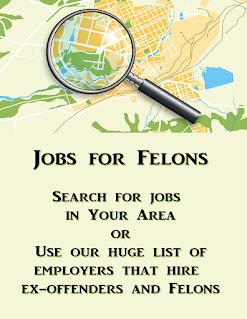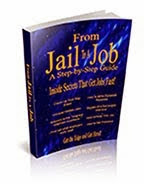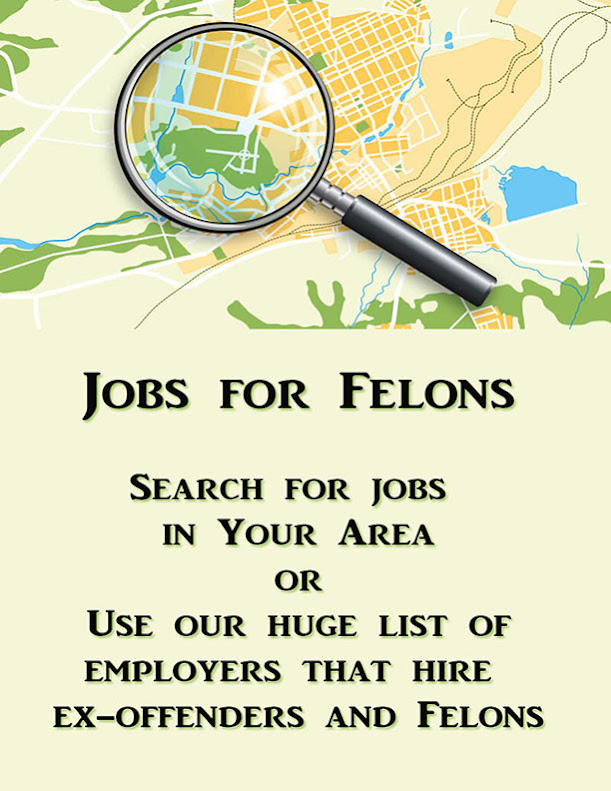One second-chance option is to join the ranks of small business owners across the U.S., although that path also presents challenges with training and funding. However, government agencies and nonprofits have stepped up to lend some support. From grants to microloans, here's a look at the aid available for felons who want to start a business.
What is a government grant?
A government grant is money provided by federal, state or local government agencies that doesn't have to be paid back. The funding, which typically targets specific groups, can cover everything from education to business startup costs.
However, there aren't many government grants specifically for felons. In the past, there were more social programs, but today, a convicted felon must compete with other business owners for grants and other types of financial assistance.
"We have a decades-old prejudice built in us," Bill Collins, a mentor for SCORE, told business.com. "It is difficult to get grants, difficult to get loans and difficult to get financing."
Some states do have training and grant programs specifically targeted at recently released felons. However, the dollar amount tends to be small, and the programs aren't widespread. Nonetheless, there are still funding resources for people with felony convictions.
Grants are also offered by foundations, corporations and other entities.
What are grants for felon business owners?
Grants.gov operates a federal government grant database that is accessible through a browser or mobile app. You can search the database by keyword, funding type, eligibility, category and other criteria.
You're better off casting a wider net by using more general search terms when looking for grants on this website. For example, a search using the keyword "felons" yielded no results, but "startup" did. Look for grants geared toward entrepreneurs, small businesses, industry, gender and heritage, instead of those intended specifically for felons or ex-prisoners. You can apply for grants directly from Grants.gov. [Want to learn the type of small business grants available? Click here.]
Department of Labor grants
The U.S. Department of Labor has grant programs to help people who have criminal records. These grants cover housing, small business expenses and other costs. Anyone is eligible to apply for the grants, so competition can be fierce.
Federal Student Aid grants
Sometimes, starting a business requires training or additional education. To make education more obtainable and affordable, the federal government offers grants and student aid. The Federal Supplemental Educational Opportunity Grant, or FSEOG, is a federal grant for undergraduate students who exhibit "exceptional" financial need. Awards range from $400 to $4,000. You can't use the money to start a business, but you can get the training needed to successfully operate one.
Keep in mind that it may be difficult to get a grant. Priority is given to Federal Pell Grant recipients first, and felons are ineligible for that program.
"Like any business grants, they are never easy or common," said Danny Fitzgerald, acting regional director for the Small Business Development Center in San Diego. "The trick for many [with a felony conviction] is getting regular loans."
Small Business Administration programs
The Small Business Administration (SBA) offers programs, such as free training and loans, designed to help entrepreneurs get their businesses up and running. Depending on your situation, some or all of the programs may be right for you.
Boots to Business
Boots to Business is an entrepreneurial and educational training program provided by the SBA. Through the course, participants get an overview of what entrepreneurship is, learn business ownership fundamentals, and are exposed to the skills and resources needed to write a business plan and launch an enterprise. It is a two-day program that's normally run in person. Following the completion of Boots to Business, participants get access to the SBA's B2B Revenue Readiness online course in partnership with Mississippi State University.
Run in conjunction with the Boots to Business program is the Boots to Business Funding Opportunity, which is awarded exclusively to Boots to Business participants. Through this program, the SBA provides support to the business for five years.
SBA microloans
Microloans are a popular way for people with little or no credit history to access small business loans. The SBA's microloan program provides small businesses with loans of up to $50,000. The SBA partners with nonprofit community-based organizations to issue and administer the loans. The average microloan is around $13,000, with interest rates averaging between 8% and 11%. Proceeds from the SBA's microloans can be used for working capital, inventory or supplies, furniture or fixtures, and machinery or equipment.
The SBA's microloan program is particularly attractive for felons because most approved lenders aren't looking for an excellent credit score or an expansive credit history. "Microlenders are comfortable in credit-building situations," Fitzgerald said.
Crowdfunding
Crowdfunding has become a popular way to test a business idea or raise funding. Through these digital platforms, you present your idea, list how much you are looking to raise and launch your campaign. Individuals can invest in your company in exchange for stock or gear. Most business owners don't get rich through crowdfunding, but it is a way to raise some startup capital.
"The challenge with crowdfunding sometimes is, you can get lost in a sea of funding requests," said Michael Brooks, associate director of the Alabama SBDC Network. "America loves a good recovery, redemption story. If you have a good story to tell, it's possible you'll get interest."
Popular crowdfunding sites for business owners include Indiegogo and Kickstarter.
What are other resources for felon business owners?
Raising capital and using a microloan are common ways felons can start a business, but they aren't the only avenues. Depending on the support system of the individual, the felon may be able to tap friends and family for loans. Alternatively, felons can choose a business that they can get up and running with little capital, such as painting or landscaping.
Ultimately, it pays to take advantage of any training programs available while you are incarcerated, as you can gain skills that can help you find employment and launch a business.
For example, skilled trades such as plumbing, HVAC and carpentry are seeing high demand right now, Collins said, and gaining those kinds of skills is a good way to get jobs and a path toward business ownership.



















